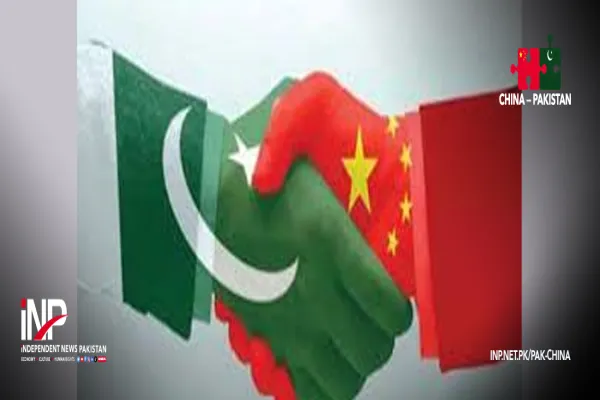i NEWS PAK-CHINA
64th "Gwadar Day", an epic memory of the transfer of Gwadar from Oman to Pakistan, was celebrated with traditional fervor, offering people to refresh the watershed moment that is now changing the physical layout of Gwadar from a small fishing town to a rising logistic hub in the region, Gwadar Pro reported on Friday. People commemorate Gwadar Day every year on 8th December to mark the merger of Gwadar with Pakistan by holding various functions and events in Gwadar. In the historical context, Gwadar was formally handed over to Pakistan in 1958 by Oman. Initially, a naval platoon led by then Lt Iftikhar Ahmed Sirohey of the Pakistan Navy landed at Gwadar and unfurled Pakistan's flag.
Various activities were held at Gwadar under the auspices of the Pakistan Navy and Commander Coast (COMCOAST). Earlier, the day began with an impressive flag-hoisting ceremony held at PNS Akram, Gwadar. The Gwadar Day celebrations were aimed at rekindling awareness about the history of Gwadar among the masses. A large audience, including civil dignitaries, military officials, and local notables, also witnessed the activities. Gwadar is a Balochi word that means 'The Door of Wind'. Though located on the southwestern coast of Balochistan, the area is on the convergence of three strategically important zones of the world which are oil-rich Middle East, Central Asia with surplus natural resources, and South Asia having greater economic potential.
Gwadar is situated on a natural hammer-head shape tombolo peninsula forming two almost perfect, but naturally curved, semi-circular bays on either side. Historically before Gwadar was recognized as part of Pakistan, the area was in possession of Oman from 1783 to 1958. The strategic value of this location as a deep water port was identified by the United States Geological Survey when the territory was still under Omani rule. Pakistan bought the area of Gwadar from Oman while Oman previously was also under British rule. British had concluded an agreement with the Sultan of Oman on March 20, 1891, in which the final pledge was, "never to cede, sell, mortgage or otherwise give in occupation any of his dominions or dependencies to the British government".
However, the Pakistani Government continued to raise the issue with the British. In 1958, after learning that the Indians are also trying to acquire Gwadar land, the Government of Pakistan intensified its efforts and succeeded in concluding an agreement with the British Government on August 1, 1958. At this time, the British Government was already under pressure in a move by UNSC where it was blamed for armed aggression by the UK against the independence, sovereignty, and territorial integrity of the Imamate of Oman. The Sultan of Muscat was also in dire need of funds to continue his campaign against the Imam. According to the agreement, the Pakistani Government had to pay an amount of £3 million ($10m) along with some concessions to the Muscat Government.
Hence in 1958, Gwadar was transferred to Pakistan, through a British representative. On behalf of the Sultan of Muscat, the Wali handed over Gwadar to the representative of the British Counsel General in Muscat, who in turn, handed over possession to Pakistan. The Pakistani side was represented by Mr. Agha Abdul Hamid, who was the Principal Private Secretary to the Prime Minister and Secretary Cabinet Division. It was made a tehsil of district Makran in the Balochistan province till July 1, 1977, when it was given the status of a district. As Gwadar has the potential and capacity for construction of another deep sea port after Karachi Port and Port Qasim, work on its development is being carried out with an ace.
The port under construction at Gwadar is owned by the Pakistan government's Gwadar Port Authority and operated by state-run Chinese firm China Overseas Port Holding Company (COPHC). Gwadar Port is located at the mouth of the Persian Gulf, just outside the Straits of Hormuz, near the key shipping routes in and out of the Persian Gulf. Being a deep sea port and having warm waters, the shortest sea route, throughout-the-year availability, and strategic location, Gwadar is considered a gateway and hub of all commercial and trade activities which is going to further generate business ventures.
Credit: Independent News Pakistan-INP









